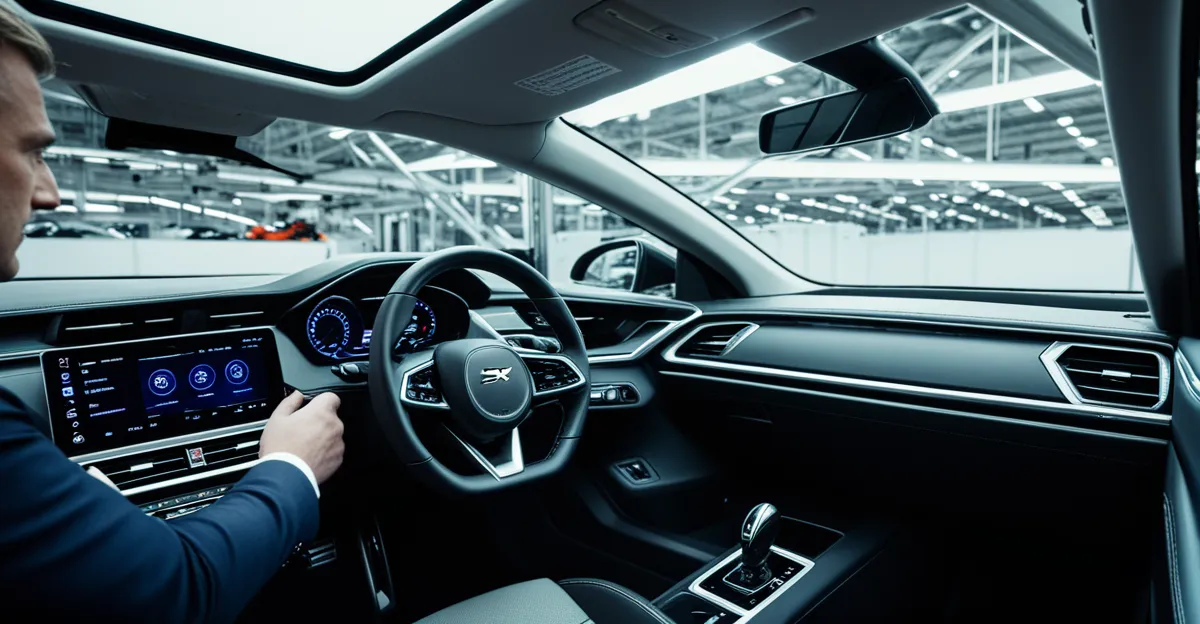Economic Challenges in the UK’s Automotive Industry
The UK’s automotive industry faces significant economic challenges in the wake of Brexit, as shifting trade policies deeply affect both imports and exports. Since Brexit, tariffs and stricter regulations have increased costs, causing uncertainty, disrupting supply chains, and impacting industry growth. This has led to crucial changes in how businesses manage cross-border trade, significantly influencing profit margins.
Furthermore, the economic downturn has softened consumer demand and shrunken purchasing power. This creates a strain on automotive sales, as consumers become hesitant to make large financial commitments. Industry players must navigate this landscape by adjusting pricing strategies and crafting compelling value propositions to maintain consumer interest.
In parallel : How are UK automotive companies improving supply chain resilience?
Investment interruptions pose another hurdle, delaying technological advancements and innovation. Companies grapple with reduced access to funding, affecting their ability to develop new models and adopt cutting-edge technologies. This stifles competitive edge and stagnates potential growth. Overcoming these challenges will require renewed focus on securing investments, fostering partnerships, and possibly realigning business strategies to leverage competitive advantages.
Technological Advancements and Challenges
Amidst a rapidly evolving automotive landscape, technological innovation remains pivotal for the UK’s industry, though it presents unique challenges. The growing adoption of electric vehicles represents a fundamental shift from traditional combustion engines, prompting manufacturers to alter their production processes significantly. Factories must now accommodate the assembly of electric drivetrains, highlighting a need for significant investment in new equipment and skills training.
Also read : How Can Advances in UK Automotive Technology Impact Urban Mobility?
Furthermore, integrating advanced technologies like automation and artificial intelligence (AI) introduces both opportunities and obstacles. While automation streamlines operations and enhances efficiency, its implementation requires a substantial initial outlay and a strategic approach to workforce management. Companies must prioritize upskilling their workforce to handle sophisticated machinery, ensuring that personnel remain an integral part of operations despite increased mechanization.
In response to these shifts, manufacturers are focusing on workforce development, offering training programs to equip their employees with the necessary skills. By aligning human resources with technological advancements, the industry can maintain its competitive edge while embracing the future of mobility. Adopting such technologies is not just about keeping pace; it’s essential for sustaining growth and innovation within the sector.
Regulatory and Environmental Challenges
The UK’s automotive industry grapples with mounting environmental regulations, intensifying the pressure on manufacturers to comply with stringent emissions standards. These regulations mandate significant alterations to production methods and materials, often leading to increased costs and operational changes. As governments strive for greener economies, the automotive sector must adapt quickly or risk facing penalties and loss of market share.
One of the immediate impacts of stricter emissions standards is the need for regulatory compliance. Manufacturers are required to innovate and integrate cleaner technologies into their vehicles to meet these requirements. This involves research and development into alternative fuel sources, improved engine efficiency, and further electrification of vehicle lines. The shift towards such practices not only ensures compliance but also aligns with evolving consumer expectations for sustainable options.
Moreover, the industry’s response to sustainability pressures is critical. Companies are investing in ways to reduce their carbon footprint and contribute positively to environmental goals. Initiatives include adopting circular economy practices, enhancing energy efficiency in manufacturing processes, and collaborating with governments and non-profit organizations to tackle environmental challenges collectively. This proactive approach not only facilitates regulatory adherence but also builds a brand image centered around sustainability, appealing to an increasingly eco-conscious audience.
Supply Chain and Manufacturing Issues
In recent times, supply chain disruptions have posed significant challenges to the UK’s automotive industry. One of the primary culprits has been the global shortage of semiconductors, crucial components in modern vehicles. This scarcity has led to prolonged manufacturing delays and created bottlenecks in production schedules. Automotive manufacturers are grappling with unforeseen pauses in production lines, impacting their ability to meet demand and maintain delivery timelines.
The disruptions in supply chains necessitate strategic adjustments within the industry. Companies are actively exploring logistics solutions to mitigate these risks. This involves diversifying suppliers to lessen dependency on single-source providers and implementing flexible logistics operations capable of adapting to sudden changes. The agility in logistics is essential to maintain continuity in production and ensure timely distribution of finished vehicles.
Local sourcing emerges as a critical strategy in enhancing supply chain resilience. By fostering relationships with domestic suppliers, automakers can reduce exposure to international supply chain volatility and minimize transportation risks. This approach not only bolsters supply chain security but also contributes to the local economy. It emphasizes the industry’s shifting focus towards building a robust and responsive supply chain infrastructure capable of withstanding global disruptions.
Global Competition and Market Dynamics
In the realm of the UK’s automotive industry, navigating global competition and evolving market dynamics stands as a formidable challenge. Foremost among these is competition from emerging markets, particularly in Asia. These regions boast rapidly advancing automotive sectors fueled by aggressive innovations, cost-effective manufacturing processes, and expanding infrastructure dedicated to vehicle production.
Market trends play a pivotal role in shaping consumer preferences and, consequently, automotive design. As consumers increasingly seek vehicles that offer environmental benefits, intuitive technology, and enhanced safety features, UK manufacturers must remain agile. To meet rising expectations, they are integrating advanced infotainment systems, driver-assistance technologies, and sustainable materials, thereby aligning product offerings with global consumer demands.
In response to these challenges, UK automakers are crafting strategic responses to retain market share in a global economy. This includes forging partnerships to foster innovation, exploring foreign markets to broaden sales channels, and investing in research to maintain a competitive edge. By prioritising agility and continuous adaptation, the UK’s automotive industry seeks to thrive despite the pressures of international competition.











